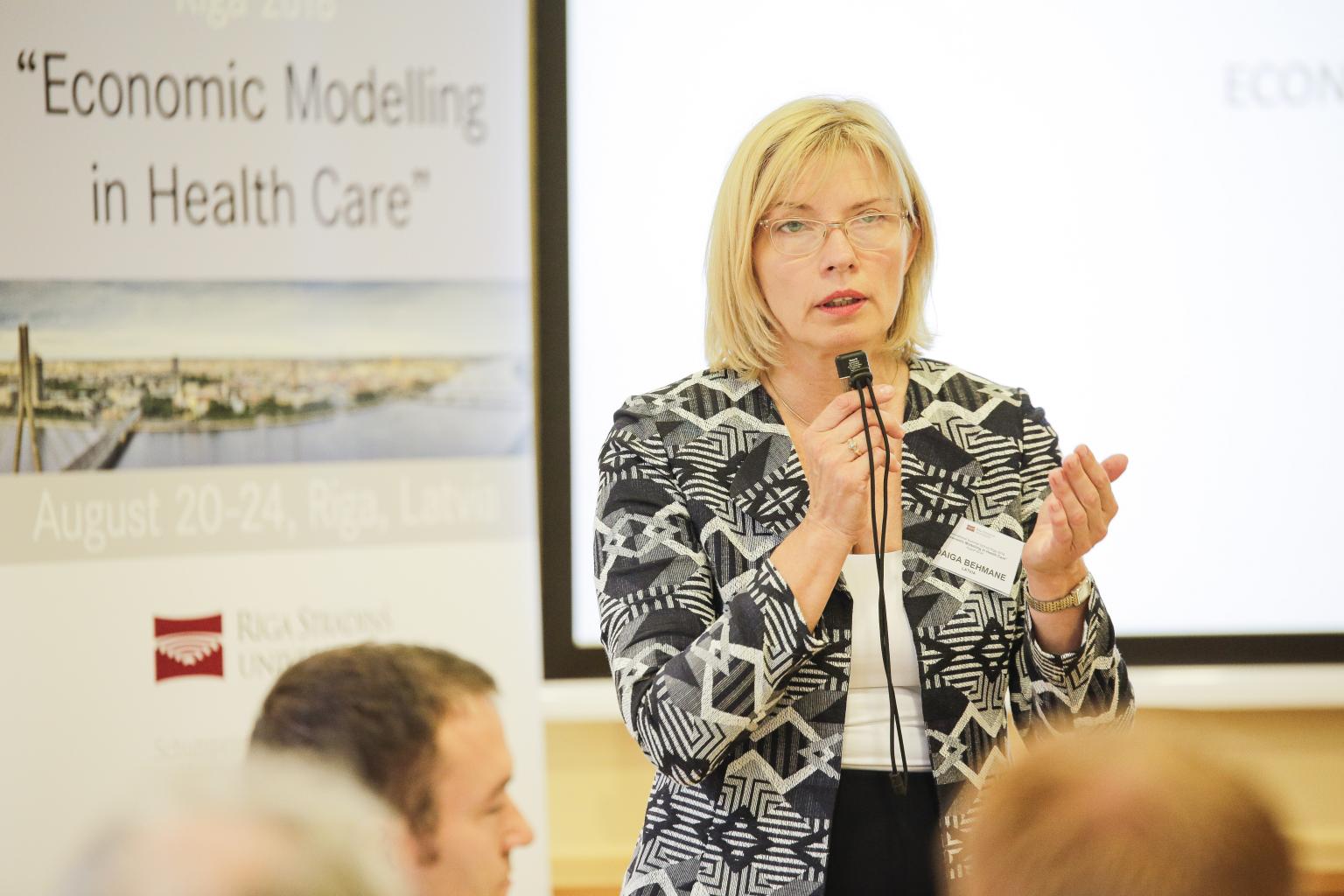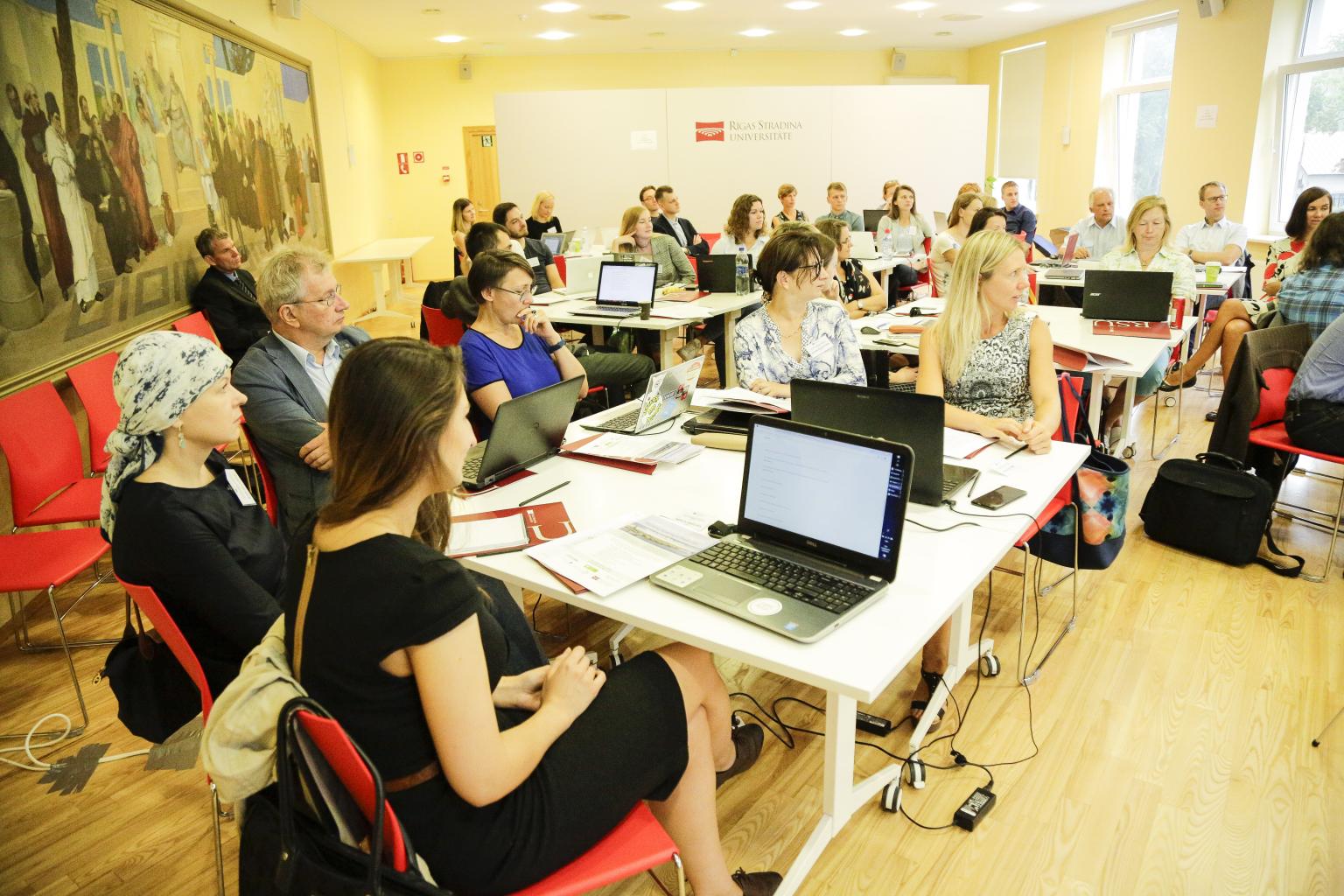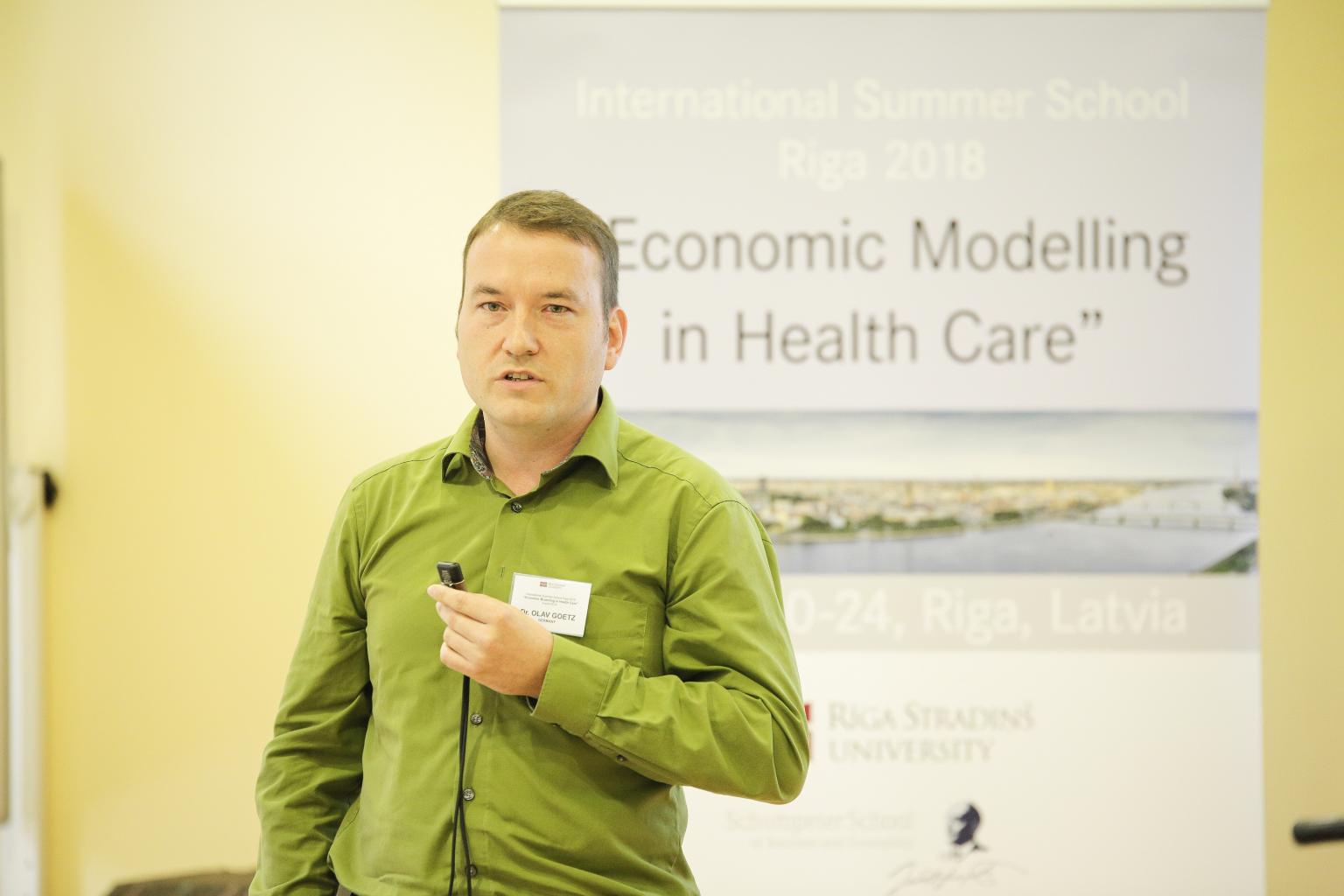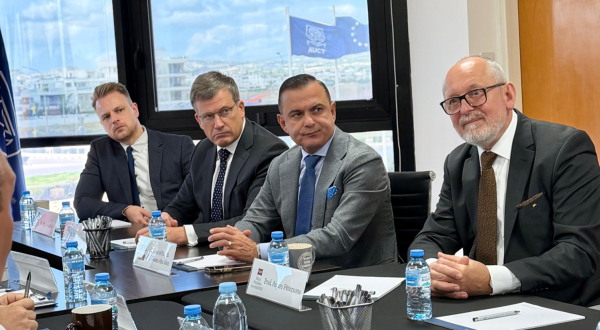Economic modelling in healthcare taught at RSU International Summer School
Last week from 20 to 24 August, Rīga Stradiņš University (RSU) hosted the international summer school "Economic Modelling in Health Care", organised in conjunction with the University of Greifswald and the University of Wuppertal in Germany and the University of Exeter, United Kingdom. The aim of the summer school was to broaden participants' knowledge on various mechanisms of healthcare modelling and their use. Students from the RSU Health management programme and other programmes participated, together with doctoral students, academic staff, representatives from the University of Latvia and BA School of Business and Finance, students from Germany, Netherlands and Lithuania, as well as representatives from the Ministry of Health, the National Health Service and the Centre for Disease Prevention and Control of Latvia. During five days of intensive lectures and working groups participants acquired the principles of healthcare economics and instruments for economic modelling.
 The organiser of the Summer School, Deputy Director of the RSU Institute of Public Health, Vice-Dean of the Faculty of Public Health and Social Welfare, Daiga Behmane, views that some very well-known methods of economic modelling in health care systems have not been used in Latvia and decisions are sometimes made based on feelings not research. The main task of the summer school was to provide participants with in-depth knowledge in methods of economic analysis, as well to discuss how to put these methods into practice. “ In order to make accurate and qualitative decisions, health care policy makers in Germany and a number of other EU countries invite universities to conduct research on health care and its economic development. Latvia could take part in this cooperation,” admits Vice-Dean D. Behmane.
The organiser of the Summer School, Deputy Director of the RSU Institute of Public Health, Vice-Dean of the Faculty of Public Health and Social Welfare, Daiga Behmane, views that some very well-known methods of economic modelling in health care systems have not been used in Latvia and decisions are sometimes made based on feelings not research. The main task of the summer school was to provide participants with in-depth knowledge in methods of economic analysis, as well to discuss how to put these methods into practice. “ In order to make accurate and qualitative decisions, health care policy makers in Germany and a number of other EU countries invite universities to conduct research on health care and its economic development. Latvia could take part in this cooperation,” admits Vice-Dean D. Behmane.
 The skills that participants acquired in the summer school were: modelling of economically substantiated healthcare service locations in a city or region, the effectiveness of services and costs and the planning of patient flow in a health care institution, the projection of the epidemiological distribution of diseases etc. As lecture and seminar participants were not only from Latvia but also from other EU countries, the knowledge acquired will have far-reaching practical use geographically.
The skills that participants acquired in the summer school were: modelling of economically substantiated healthcare service locations in a city or region, the effectiveness of services and costs and the planning of patient flow in a health care institution, the projection of the epidemiological distribution of diseases etc. As lecture and seminar participants were not only from Latvia but also from other EU countries, the knowledge acquired will have far-reaching practical use geographically.
 Health care consultant from Leipzig, Olaf Goetz, demonstrated a clinic management simulation programme to participants where, with the help of a modern computer programme, the most effective models for layout of hospital premises, working hours, patient admission, medical staff appointment and other matters are determined. "It is important to have knowledge of a number of simulation methods that are available to hospital management, in order to choose the most appropriate and safest ones for patients, also to cost-effectively utilise the funding that is available," emphasises the expert.
Health care consultant from Leipzig, Olaf Goetz, demonstrated a clinic management simulation programme to participants where, with the help of a modern computer programme, the most effective models for layout of hospital premises, working hours, patient admission, medical staff appointment and other matters are determined. "It is important to have knowledge of a number of simulation methods that are available to hospital management, in order to choose the most appropriate and safest ones for patients, also to cost-effectively utilise the funding that is available," emphasises the expert.
The first summer school in the areas of health management and economics for RSU students was held two years ago in Germany at the University of Greifswald, where the accessibility of health care in rural regions was analysed. The next summer school is planned to be held at another partner university.
Related news
 RSU management discusses development of medical education cooperation at high-level meetings in Cyprus International Cooperation
RSU management discusses development of medical education cooperation at high-level meetings in Cyprus International Cooperation


